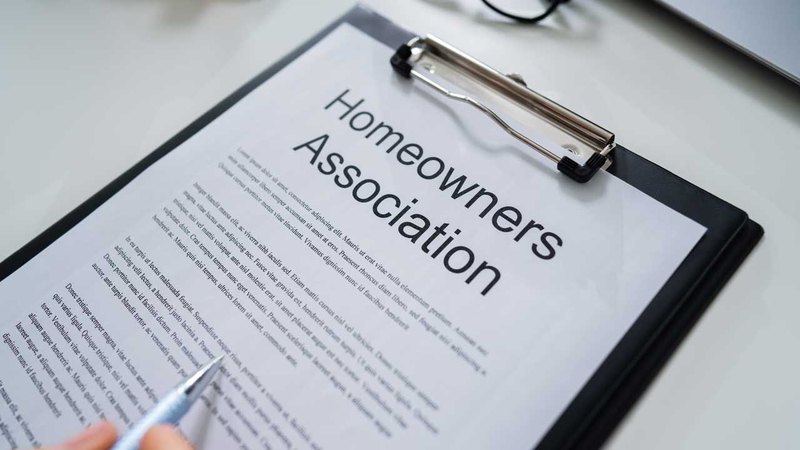Understanding Homeowners Rights Against HOA in Resolving Disputes
HOA regulations are meant to protect and maintain the values of the community and its properties. However, these policies often lead to disputes. You should understand your rights as a homeowner.

So, you've found your dream home, and you're wondering how to deal with the community's HOA board. There are many ways to settle HOA disputes without lawsuits. Tax certificates such as HOA estoppels are the best way to ensure you're getting the best deal.
HOA has the power to create and enforce community policies legally. HOA policies are there to minimize property negligence and improve maintenance to protect community and property values. But these policies can create friction between the homeowners and HOA, leading to homeowner association disputes. Failure to resolve these disputes peacefully can lead to HOA litigation.
This article should help you better understand your rights as a homeowner.
What Are Homeowner’s Rights? Getting The Best Out of HOA Disputes
- Protections against discrimination – Homeowners are protected against HOA discrimination through homeowners’ association lawsuits by the Fair Housing Act. Discrimination by sex, religion, race, family status, disability, etc. is permitted and protected by the Fair Housing Act.
- Protection from new policies made without voting – All HOA policies and regulations must be agreed upon publicly through discussion and vote.
- Protection against fines not outlined in HOA’s rules – This right protects against fines levied due to failure to comply with a request that isn’t outlined in the HOA rules. If a rule isn’t documented in the CC&Rs (Covenants, Conditions, and Restrictions), then you are protected by law against HOA litigation.

Other Homeowner Rights Against Homeowners Association
Unless otherwise noted in the HOA bylaws, here are more rights you should know about during HOA dispute resolution hearings.
- Right to actively participate in HOA meetings
- Right to change HOA policies and regulations
- Right to question HOA fees
- Right to sue an HOA board member in case of a breach in contractual liabilities
- Right to satellite dishes and solar installations as well as solar drying.
Homeowners Association Disputes | Types of Dispute Resolution Methods
HOA CC&Rs provide internal processes for resolving disputes of negligence, harassment, and discrimination between a community member and the HOA board. These internal processes aim to avoid HOA litigation through peaceful dispute resolution.
Negotiation
Negotiations help resolve fee disputes if one falls behind on HOA dues and assessments. During the meeting, you can negotiate a reduced payoff or ask the board for a repayment plan.
Mediation
During HOA mediation, a neutral third-party will listen to both sides and try to resolve the conflict by finding a middle ground. However, no side can force the other to resolve the dispute through mediation.
Arbitration
Unlike mediation, the third-party neutral in arbitration makes the final decision which cannot be disputed in court. Many states require HOA disputes to be solved through arbitration.
Legislation
Various states encourage homeowners to resolve disputes with HOA without requiring a lawsuit. In some states, there are anti-lawsuit laws to prevent homeowner association lawsuits.
Therefore, you should understand the different ways available to resolve disputes out of court.
Homeowners Rights Against Homeowners Associations | Tips You Should Use
All homeowners associations have a process for processing members' complaints like maintenance and negligence complaints. You can use this process to your advantage to get your HOA disputes and concerns heard in an efficient way.
Ask for Written Complaints
When a complaint is made against you either by other homeowners or by the association, ask to see the complaint in writing. During HOA dispute resolution, complaints should be presented in writing and the identity of the complainant clearly shown.
Collect Complaints
If you have HOA liabilities complaints, you should collect your complaints and bring the list to the board meeting. Since HOA board meetings are informal, having a structured list of complaints will help you convey your concerns effectively in the allocated time.
Limited Authority to Property Manager
Most homeowners associations have a property manager whose office receives all the HOA disputes, complaints, comments, and questions. However, property managers may not fully understand the issue you’re trying to raise. Always make sure you have the correct information from the property manager in relation to your dispute.
Use HOA Management Company
You should forward HOA disputes and complaints through the property management company. This way, your complaints will be forwarded to the board packets before the meeting.

Trust CertSimple for Effective Homeowners Association Resolution
CertSimple provides top-quality and practical solutions you can leverage in homeowners association disputes. Through our experienced and knowledgeable team, we find and provide tax and HOA certificate, as well as associations and management company information.
Contact us today for accurate, efficient, and effortless real estate closing solutions.